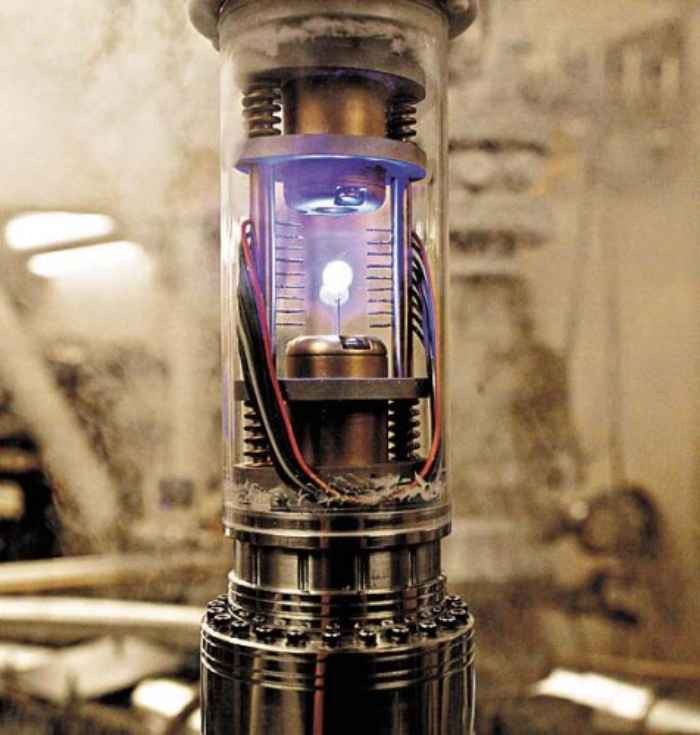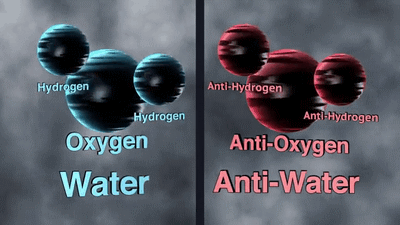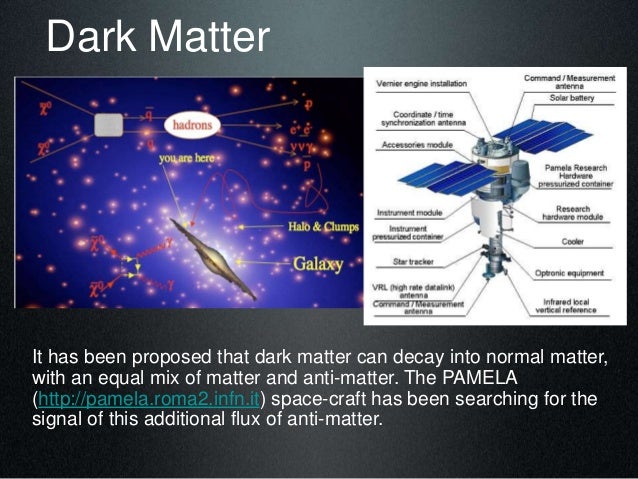

The experiment captures antiprotons and combines them with antielectons (positrons) to make antihydrogen atoms, which are stored and studied for a few seconds in a magnetic trap. We certainly expect antimatter to fall down, but just maybe we will be surprised.”įajans and fellow physics professor Jonathan Wurtele employed data from the Antihydrogen Laser Physics Apparatus (ALPHA) at CERN. “We’ve taken the first steps toward a direct experimental test of questions physicists and nonphysicists have been wondering about for more than 50 years. “This is the first word, not the last,” Fajans. Though far from definitive – the uncertainty is about 100 times the expected measurement – the UC Berkeley experiment points the way toward a definitive answer to the fundamental question of whether matter falls up or down.
Matter vs antimatter free#
In a new paper published online on April 30 in Nature Communications, the UC Berkeley physicists and their colleagues with the ALPHA experiment at CERN, the European Organization for Nuclear Research in Geneva, Switzerland, report the first direct measurement of gravity’s effect on antimatter, specifically antihydrogen in free fall. A few theorists have argued that some cosmological conundrums, such as why there is more matter than antimatter in the universe, could be explained if antimatter did fall upward. Farewell traveler, your antimatter stores won't save you now.UC Berkeley physicists asked the question, does normal hydrogen (left, with a negatively charged electron orbiting a positively charged proton) weigh the same as antihydrogen (a positively charged positron orbiting a negatively charged antiproton)? Image by Chukman So, UC Berkeley.Īlmost everyone, including the physicists, thinks that antimatter will likely fall at the same rate as normal matter, but no one has ever dropped antimatter to see if this is true, said Joel Fajans, UC Berkeley professor of physics.Īnd while there are many indirect indications that matter and antimatter weigh the same, they all rely on assumptions that might not be correct. That should save you some money in wasteful antimatter production. It only makes the black hole more massive. The bottom line is: If a regular black hole and an antimatter black hole got black-hole-married in space, they wouldn't vanish.įeeding in antimatter won't do any good, it's just like regular matter or energy. If physicists could work out that math, then you could create microscopic antimatter black holes by smashing together anti-hydrogen particles, and the costs involved would dwarf the production of antimatter itself. It's possible that the Large Hadron Collider is capable of creating microscopic black holes, although none have been created yet. Each collision creates a tiny handful of particles that could be collected and contained in a magnetic field to hold them in place and keep them from being annihilated.Īccording to NASA, a single gram of antihydrogen would cost about $62.5 trillion to create, the most expensive material we could possibly make on Earth. The collective momentum of the particle is converted into mass using Einstein's famous e=mc2 calculation.

Antimatter is produced in particle accelerators, protons are accelerated in an enormous ring, pushed to nearly the speed of light, and then smashed into each other's faces. It's all backwards.Īlso, creating an antimatter black hole would be expensive. Electrical charges, spin directions, and configuration of all the sub-particles that make it up. Why can't you just pump antimatter in to cancel out the regular matter of the black hole and cut a path to escape?Īntimatter is exactly the same as regular matter, except everything is backwards. Why won't that green blooded pointy-eared hobgoblin of a science officer back me on this one? If you add a positive number and a negative number together, don't they just cancel each other out? I mentioned one idea, antimatter, and dismissed it as just another hopeless convertand pointless way to enflame this galactic monstrosity.īut wait, you say, isn't antimatter the opposite of regular matter. That's not really helpful if you're getting pulled into the black hole, and have sense of immediacy about it. Turns out the only way to defeat a black hole is to sit on your hands and wait for it to evaporate.

Nothing would work, everything would just make it bigger and angrier. I've suggested a bunch of crazy ideas, like blasting it with rockets, shooting lasers at it, smashing planets into it.


 0 kommentar(er)
0 kommentar(er)
